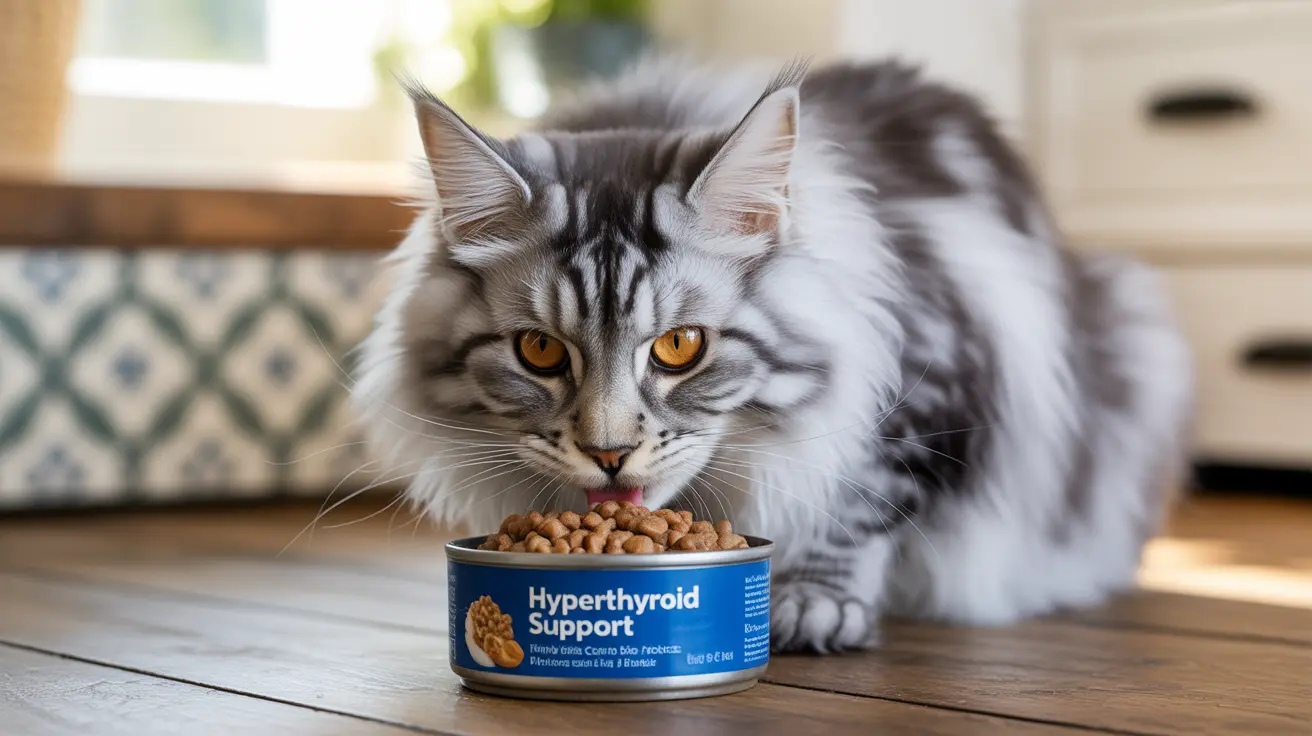Understanding Hyperthyroidism in Cats
Hyperthyroidism is a common endocrine disorder affecting senior cats, typically developing after age 10. This condition occurs when the thyroid glands produce excessive hormones, leading to increased metabolism and various health complications. Understanding how to manage this condition through proper nutrition is crucial for your cat's wellbeing.
While various treatment options exist, including medication and radioactive iodine therapy, dietary management plays a vital role in supporting cats with hyperthyroidism. The right canned cat food can help maintain muscle mass, manage weight, and potentially contribute to better treatment outcomes.
Selecting the Best Canned Cat Food for Hyperthyroidism
When choosing canned cat food for a hyperthyroid cat, several key nutritional factors must be considered:
Protein Content
High-quality protein is essential for hyperthyroid cats, who often struggle with muscle wasting. Look for foods containing at least 10-12% protein on a wet-matter basis, with animal-based proteins listed as the first ingredients.
Moisture Levels
Canned foods typically contain 75-82% moisture, which is ideal for hyperthyroid cats who may be prone to dehydration and concurrent kidney issues.
Fat Content
Adequate fat levels (6-8% minimum) help provide necessary calories and support weight maintenance in cats with increased metabolism.
Top Recommended Food Options
Prescription Diets
Hill's Prescription Diet y/d is specifically formulated for hyperthyroid cats, featuring controlled iodine levels. This option requires veterinary approval and must be fed exclusively for optimal results.
High-Quality Commercial Options
Several premium commercial options provide excellent nutrition for hyperthyroid cats:
- Wellness CORE Natural Grain-Free Turkey & Duck Pate
- Instinct Original Grain-Free Real Chicken Recipe
- Open Farm Homestead Turkey Rustic Blend
Important Dietary Considerations
When managing hyperthyroidism through diet, consider these crucial factors:
- Avoid fish-flavored varieties, which may contain higher iodine levels
- Choose grain-free options to reduce unnecessary carbohydrates
- Monitor portion sizes to maintain weight
- Ensure consistent feeding schedules
Transitioning to New Food
When introducing new canned food to your hyperthyroid cat, make the transition gradually over 7-10 days to prevent digestive upset. Mix increasing amounts of the new food with decreasing amounts of the current food until the transition is complete.
Frequently Asked Questions
What is the best canned cat food for managing hyperthyroidism in cats?
The best options include Hill's Prescription Diet y/d for iodine restriction, or high-protein, grain-free options like Wellness CORE and Instinct Original for general nutritional support. The choice depends on your cat's specific needs and veterinary recommendations.
How does an iodine-restricted diet help cats with hyperthyroidism?
Iodine restriction helps control thyroid hormone production, as iodine is a crucial component in thyroid hormone synthesis. Limiting dietary iodine can help manage symptoms and stabilize thyroid function.
Are there specific ingredients or flavors in canned cat food that hyperthyroid cats should avoid?
Yes, fish-flavored foods should be avoided as they typically contain higher levels of iodine. Also, avoid foods with artificial preservatives and excessive carbohydrates.
Can feeding canned cat food with high moisture content improve symptoms of hyperthyroidism?
Yes, high moisture content supports hydration and kidney function, which is particularly important for hyperthyroid cats who may have increased thirst and urination.
How should I transition my hyperthyroid cat to a new canned diet safely?
Implement a gradual transition over 7-10 days, slowly increasing the proportion of new food while decreasing the old food. Monitor your cat's response and adjust the transition period as needed.
Conclusion
Selecting the right canned cat food for hyperthyroidism requires careful consideration of nutritional content, ingredient quality, and your cat's specific needs. Always work closely with your veterinarian to develop an appropriate dietary plan, and monitor your cat's response to dietary changes. With proper food selection and careful management, you can help support your cat's health and quality of life while managing their hyperthyroidism.






